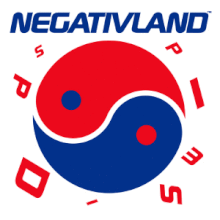History
The album was an attack on the highly competitive soft drink companies Coca-Cola and Pepsi. The title is a variation of dyspepsia , which is synonymous with indigestion. The word "Dispepsi" deliberately does not appear anywhere on the album artwork, but a telephone number was set up to provide the proper title. It is scrambled into anagrams including "Pedissip" and "Ideppiss", as the band originally believed they would be sued for trademark infringement if the actual title was shown. Once Pepsi lawyers indicated that they had no intention of suing Negativland, they began referring to it by its actual title. [6] However, on the front artwork (based on the flag of South Korea), the actual album title could be un-scrambled by reading the red letters in order of their decreasing size, starting with the largest, D, and ending with the smallest, I.
Notes on samples include:
- "All of the cola commercials that were appropriated, transformed, and reused in this recording attempted to assault us in our homes without permission. Other sources reused include: talk radio, MOMMIE DEAREST, tabloid TV, Pepsi and Shirlie, documentary TV, Bryan Ferry, the news, Ice-T, public service announcements, Asha Bhosle, MC Lyte, The Clio Awards, traditional Burmese music, the O. J. Simpson murder case, motivational marketing tapes by advertising executives." [7]
A music video for "The Greatest Taste Around" incorporates clips of Pepsi ads synchronized with the song.
This page is based on this
Wikipedia article Text is available under the
CC BY-SA 4.0 license; additional terms may apply.
Images, videos and audio are available under their respective licenses.
